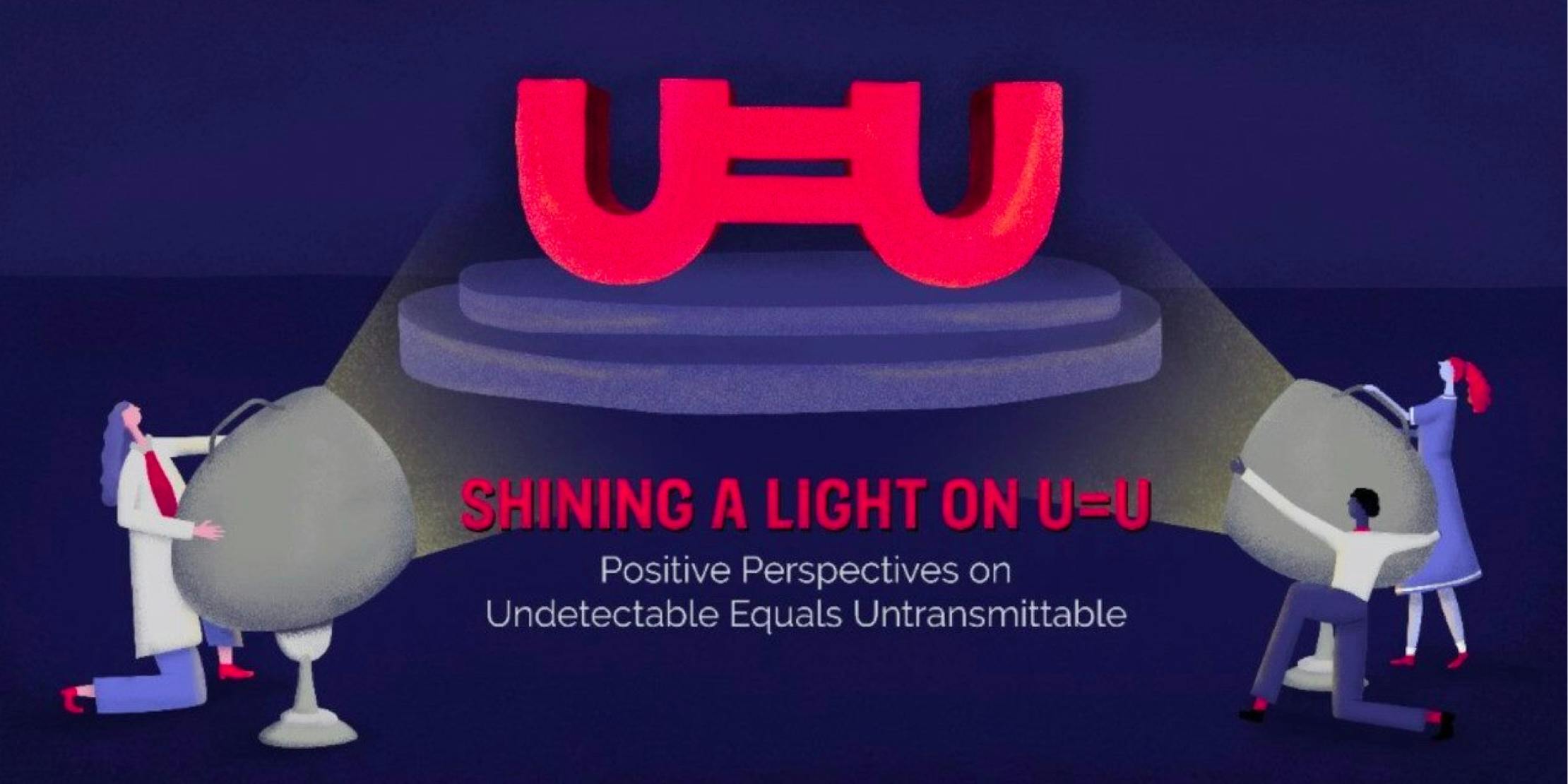POSITIVE PERSPECTIVES ON UNDETECTABLE = UNTRANSMITTABLE

From The Denver Principles to U=U
In 1983, The Denver Principles set out a roadmap towards healthcare rights and public health policy for people living with HIV (PLHIV). 1. Drawn up by many who would eventually succumb to AIDS, these principles included calls for equal healthcare rights for PLHIV, confidentiality of their medical records, and involving the community in the response to the HIV epidemic. 1
By 2016, advances in medical science and treatment reached the point where PLHIV on effective medication had improved life expectancy, and those who had viral suppression (HIV RNA <50 copies/mL) could not transmit the virus to their sexual partners.2 To signpost this landmark, the Undetectable = Untransmittable (U=U) campaign was launched to help PLHIV and society as a whole move past the internal and external stigma attached to HIV2.3 The campaign has made massive strides and is now endorsed by medical organisations and leading figures around the world, including the centres for Disease Control and Prevention, and the National Institute for Allergy and Infectious Diseases, including the latter’s renowned director Dr. Anthony Fauci .4-5 Adding weight to these endorsements was the December 2019 recommendation of the US Department of Health and Human Services HIV Treatment Guidelines that all PLHIV should be informed of U=U.6
Positive Perspectives 2 research
Despite the endorsements of U=U, we still need to ask PLHIV what our marching orders are to stay on track. We therefore developed the Positive Perspectives research, in collaboration with an international, multi-disciplinary Advisory Committee and involving 2,389 PLHIV across 25 countries around the world. We asked them about their experiences with medicines, their health, and their interactions with healthcare professionals (HCPs). 7
What we found was a significant association between PLHIV who were informed about U=U by their HCPs and improved self-reported health outcomes. For example, PLHIV informed about U=U were more likely to report viral suppression than those who were not). We also saw the same trend for self-reported optimal adherence, and treatment satisfaction. 7
What these results highlight is that when U=U is endorsed and communicated by HCPs, the benefits to PLHIV are manifold. In particular, the association between communicating U=U and improving clinical endpoints such as viral suppression really brings the message out from the community health centres, support groups, and online forums, and into the examination room.
U=U is not a warm fuzzy concept that only cozies up to soft endpoints. Communicating U=U really has the potential to benefit every step of the HIV care continuum
U=U = Us Too
Sadly, obstacles at the personal, institutional, and societal levels still block the way to U=U for many. We should recognise that the proportion of PLHIV who reported having the conversation with their HCPs in PP2 varied by region (highest in Australia and lowest in Asia) and demographics (highest in men who have sex with men, followed by women, and then men who have sex with women). 7 We also need to understand that communicating U=U will not only help improve the health of PLHIV, it will also help combat the criminalisation they face and safeguard their human rights. 8 For example, in the US, a man named Kerry Thomas is serving 30 years in prison for consensual sex where both parties agreed that he used condoms and his medical records show that he had an undetectable viral load at the time. 9, 10
There are similar cases all around the world. Sharing the U=U message will help overturn these cases and prevent them from happening again. Finally, we must engage with people who distrust science and experts and help them reach a place where U=U is understood, accepted, and passed on. Or in other words, to beat the virus, we need messages that can themselves go viral.
References
- The Denver Principles. https://actupny.org/documents/Denver.html
- PARTNER study, JAMA. 2016;316(2):171-181. doi:10.1001/jama.2016.5148
- Undetectable Equals Untransmittable: Building Hope and Ending HIV Stigma Insights from initial. https://www.thewellproject.org/hiv-information/undetectable-equals-untransmittable-building-hope-and-ending-hiv-stigma
- HIV Treatment as Prevention. https://www.cdc.gov/hiv/risk/art/index.html
- The Science is Clear: with HIV, Undetectable Equals Untransmittable. https://www.nih.gov/news-events/news-releases/science-clear-hiv-undetectable-equals-untransmittable#:~:text=WHAT%3A,the%20National%20Institutes%20of%20Health.
- Eisinger RW, et al. HIV Viral Load and Transmissibility of HIV Infection Undetectable Equals Untransmittable. JAMA. 2019;321(5):451 452. doi:10.1001/jama.2018.21167
- Guidelines for the Use of Antiretroviral Agents in Adults and Adolescents with HIV. https://aidsinfo.nih.gov/guidelines
- Okoli C, Van de Velde N, Richman B, Allan B, Castellanos E, Young B, Brough G, Eremin A, Corbelli GM, Mc Britton M, Hardy WD, de Los Rios P. Undetectable equals untransmittable (U = U): awareness and associations with health outcomes among people living with HIV in 25 countries. Sex Transm Infect. 2020 Jul 30:sextrans-2020-054551. doi: 10.1136/sextrans-2020-054551. Epub ahead of print. PMID: 32732335.
- Sinoussi FB, et al. Journal of the International AIDS Society. 2018, 21:e25161
- State v Thomas. https://caselaw.findlaw.com/id-court-of-appeals/1458804.html
- Breaking: Kerry Thomas HIV Criminalization Appeal Dismissed. https://www.hivplusmag.com/stigma/2016/5/05/breaking-kerry-thomas-hiv-criminalization-appeal-dismissed
Follow Ben on his LinkedIn page here.
YOU MAY ALSO BE INTERESTED IN:
Sexually Transmitted Infections, a global journal from the British Medical Journal (BMJ), published results from the global Positive Perspectives study that investigated how conversations with healthcare providers (HCPs) about U=U impact people living with HIV.
The Global Positive Perspectives Wave 2 Study is one of the largest, global, HIV patient-reported outcomes studies to date, involving 2,389 people living with HIV (PLHIV) aged 18-84 across 25 countries.
Global Positive Perspectives data demonstrate a strong link between high reported engagement with healthcare providers (HCPs) and positive self-reported health outcomes for people living with HIV, yet study results also show many do not feel comfortable raising important treatment issues.
If you get any side effects, talk to your doctor, pharmacist, or nurse. This includes any possible side effects not listed in the package leaflet. You can also report side effects directly via the GSK Reporting Tool link https://gsk.public.reportum.com/. By reporting side effects, you can help provide more information on the safety of this medicine.
If you are from outside the UK, you can report adverse events to GSK/ ViiV by selecting your region and market, here.


